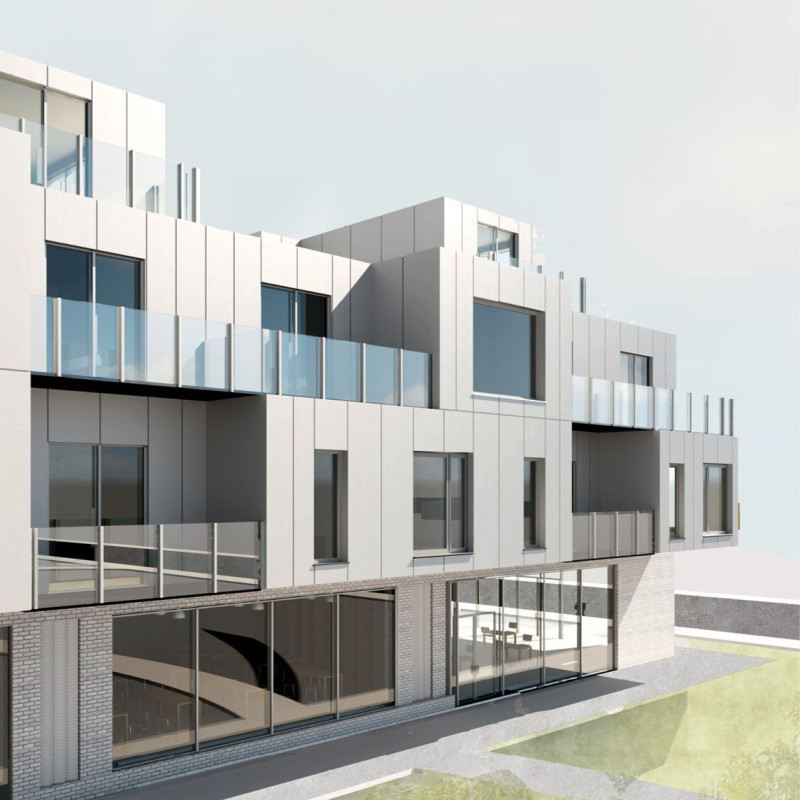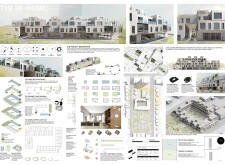5 key facts about this project
### Project Overview
The Re-Home initiative is a residential housing project located in Notre-Dame-de-Grâce, Montreal, Quebec. The design focuses on providing sustainable and adaptable living spaces through the use of modular and prefabricated construction methods. By incorporating recycled materials, the project aims to integrate effectively into the existing urban landscape while meeting contemporary housing demands.
### Architectural Form and Community Integration
The architectural design is characterized by clean lines and geometric forms that create a visually engaging composition. The façade alternates between solid and void elements, with cantilevered sections providing sheltered outdoor areas and balconies that enhance the connection to the surrounding environment. The ground floor features communal spaces, including gardens and common rooms, which encourage social interaction and contribute to a sense of community within the development.
The arrangement of residential units is optimized for natural light while offering various configurations to accommodate diverse family structures. This flexibility is reflected in a unit menu that allows residents to select layouts tailored to their needs.
### Sustainable Practices and Materiality
Sustainability is a core principle of the project, emphasizing the use of recycled materials throughout the construction process. Key materials include recycled aluminum for the façade and structural elements, wood for interior finishes, concrete for foundational support, and extensive glazing that enhances natural lighting. The prefabricated nature of the units streamlines construction, minimizing waste and reducing environmental impact.
Additionally, the project integrates energy-efficient technologies aimed at reducing overall energy consumption. Such practices not only contribute to a lower carbon footprint but also enhance the building's operational sustainability over its lifecycle.




















































